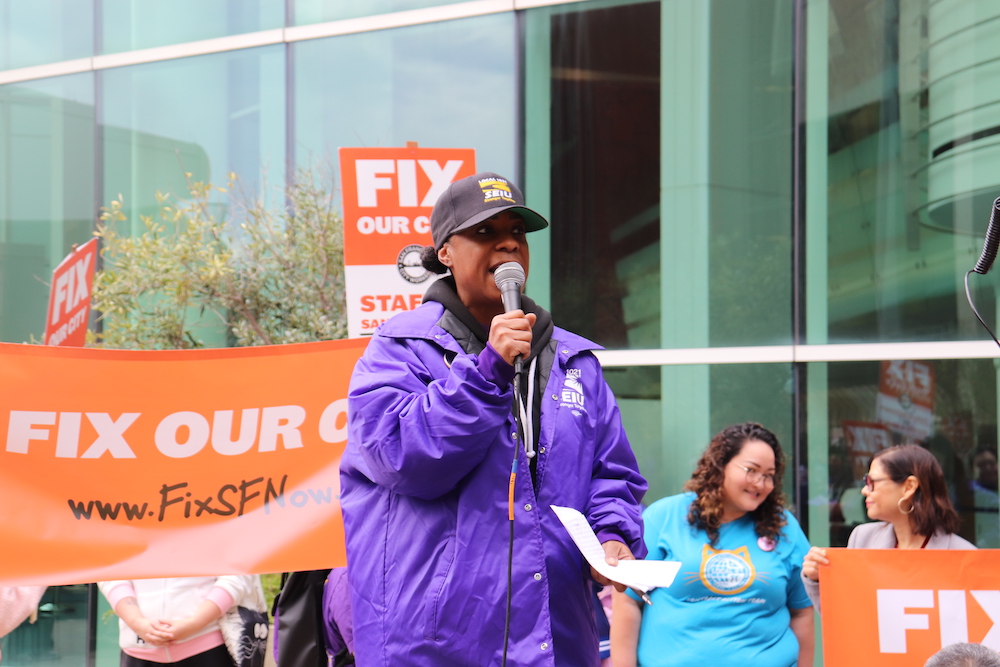San Francisco city workers are heading to “strike school” Wednesday to prepare for what could a dramatic labor action aimed at forcing the Breed Administration to fill thousands of vacancies that are threatening public services across the city.
Members of SEIU Local 1021, the Teamsters, and IFPTE Local 21 are preparing “to learn their rights and prepare for a possible strike if city administrators fail to fulfill their legal obligation through collective bargaining to fix the urgent staffing crisis that has resulted in over 3,700 vacant permanent positions. This crisis undermines the public services that San Francisco residents rely on– from clean streets to timely 911 call responses, and more,” a union press release notes. “Mayor London Breed and city administrators have thus far refused to acknowledge this vacancy crisis and its direct impact on San Francisco residents.”

The strike school is just one step towards a possible walkout, but it sends a clear signal that labor is not happy with the direction the current administration is taking—and wants changes now.
Many of the major contracts expire in June, right in the heat of a contested mayoral race. The unions will make sure that public worker pay, and vacancies, and contracting out will be major issues in the campaigns.
“Nobody wants to go on strike,” Kristin Hardy, San Francisco vice president for Local 1021, told me. “We represent some of the lowest-paid classifications in the city, and this is a last resort. We want to be doing our jobs for our clients and city residents.
“But the staffing crisis is hurting the services we provide.”
Breed’s Prop. F is just going to make this all worse, the union argues: “Our eligibility workers are not trained” for drug screening, Hardy said, and there are far too few to handle the current workload.
It’s the same question I’ve been asking from the start: Who exactly is supposed to implement this policy? And how will the city pay for it?
Labor leaders are meeting with the Mayor’s Office every Friday, but they are a long way from agreement on both filling vacancies and cost-of-living increases, Hardy said.” We hope the city will do what’s right,” she said. “But we are getting our troops prepared.”
A public-employee strike would be a political nightmare for Breed, who is looking at major cuts to every department—except the cops—and who will likely be supporting in the fall a new version of Prop. B that mandates police staffing levels, with no new revenue source to pay for them.
That could set up another class with labor, which remains a powerful political force, even in a city where billionaires are trying to take over local politics.




